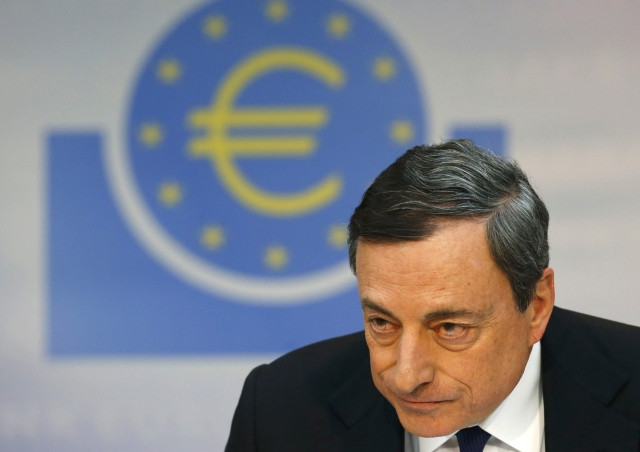Eurozone inflation higher than expected due to quantitative easing

The Eurozone has escaped months of deflation as inflation in May was 0.3%, slightly higher than the market expectation of 0.2%, the European Central Bank (ECB) announced.
Inflation turned positive for the first time since November 2014 as the influence of cheap energy shrunk and food prices increased.
Energy prices in the 19 member states were down 5%, as opposed to service prices as well as alcohol and tobacco prices, which were both up compared to 12 months before. Though the falling energy prices have a lesser influence, overall consumer prices without energy rose 1%.
Reuters reported that the better-than-expected inflation rate caused the Euro to rise 1% against the US Dollar, which is currently standing very strong.
The rise in inflation is a result of the ECB's €1.14tn (£830bn, €1.26tn) asset buying plan, known as quantitative easing (QE), launched in March 2015 to revive the Euro economy, when the ECB set an inflation target of just under 2%.
Augustine Eden, research analyst at Accendo Markets, said: "It seems the QE programme is working and it is unlikely to finish any time soon. I think the programme will go on until late 2016, which is when the ECB expects to hit its inflation target."
This schedule means the ECB will spend an average of €60bn per month on assets.
Eden said that decisions have to be made by the ECB on Greece, otherwise inflation will struggle to rise. Greece's inflation rate was at -1.8% in April 2015, by far the lowest rate in the Eurozone.
ECB president Mario Draghi, who attended talks in Germany with other European leaders about a new deal with Greece, is holding its Governing Council meeting on 3 June, where he is expected to receive answers on the QE programme and a possible deal with Greece.
© Copyright IBTimes 2025. All rights reserved.






















